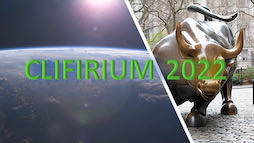The distribution of ownership of transition risk associated with stranded fossil-fuel assets remains poorly understood. We calculate that global stranded assets as present value of future lost profits in the upstream oil and gas sector exceed US$1 trillion under plausible changes in expectations about the effects of climate policy. We trace the equity risk ownership from 43,439 oil and gas production assets through a global equity network of 1.8 million companies to their ultimate owners. Most of the market risk falls on private investors, overwhelmingly in OECD countries, including substantial exposure through pension funds and financial markets. The ownership distribution reveals an international net transfer of more than 15% of global stranded asset risk to OECD-based investors. Rich country stakeholders therefore have both a greater responsibility and opportunity to contribute to managing the transition in oil and gas production and avoid destabilizing expectation changes, including through international cooperation with producing countries.
|
|
ATTENTION : Thursday, August 21 an operation is planned on the database server
which may cause access issues on Sciencesconf |
|
|
Stranded fossil-fuel assets translate into major losses for investors in advanced economies
1 : University of Massachusetts Amherst
2 : SOAS University of London
3 : Open University
4 : University of Exeter
5 : University of Cambridge
6 : World Bank
7 : London School of Hygiene and Tropical Medicine
8 : Cambridge Econometrics
* : Corresponding author
|

 PDF version
PDF version
